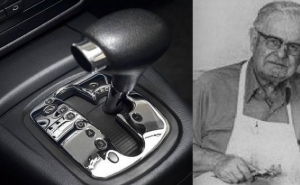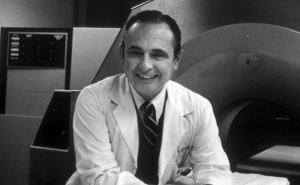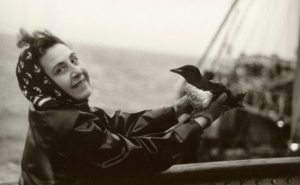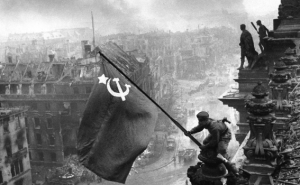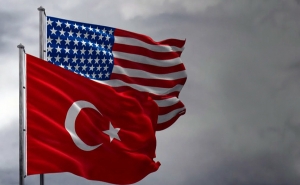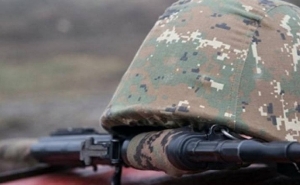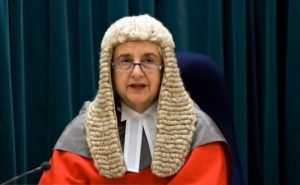The Basques are Armenians, Even Their Fate is Armenian (EXCLUSIVE)
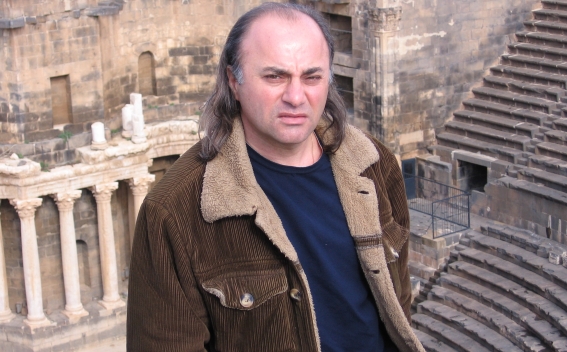
"Armedia" IAA presents an exclusive interview with Artak Avdalyan, film director, author of numerous documentary films, broadcasts, video reports.
- In 2010 you shot a documentary film about the similarity of the Armenians and the Basques. How did the idea of creating such a film came to you?
- Before meeting with Basque specialist Vahan Sargsyan, I knew little about the Basques. I remember in my youth watching one of those known TV programmes in Soviet years "Travelers club" hosted by Yuri Senkevich, during which representatives of one of the nations were presented, dressed in clothes similar to the Armenian national ones, whose both dance and music reminded kochari. I was very surprised.
So, after many years my very good friend David Aslikyan (who financed the film) called me and said that he is talking with a Basque specialist Vahan Sargsyan and they have an idea to shoot a film about the community of Armenians and the Basques, and suggested to join if I was interested. Of course, it was interesting for me, especially I have already made a documentary film about Armenians, Armenian history and about the roots of my people. As a result, the three of us went to Spain, to France - in the Basque Country, in order to make on-site filming. Vahan has repeatedly been there, knew a lot and with the financial support of Basque country translated books from Basque into Armenian and vice versa.
- What were your first impressions in the Basque Country?
- I have visited many countries in the world, but such pure, such civilized people have not yet met. Even in other parts of France and Spain, people were not so clean, civilized, hot and good-natured. We saw there a great holiday of national songs and dances. Competitions of strength demonstration- rolling of huge stones and logs- were also organized. There were special people standing with dustbins, who watched over the cleanliness. However, they didn’t do anything because no one was throwing garbage on the ground. I even saw a grandfather showing his three-year-old grandson the trash bin, so he could go and throw the candy wrapper there. The grandfather did not take the wrapper from the hands of his grandson, but pointed to the trash bin ...
In fact, apparently the Basques are very similar to the Armenians. As I have already mentioned, I have traveled a lot and always among other nations on a subconscious level, or in any other way (genetic call, perhaps) felt that the one, coming forward to me, is an Armenian. And in the Basque Country, when I say that in front of me is an Armenian, I was told “no”- he is Basque. Armenians and Basques are really very much alike- anthropologically, with eye expression, manner of speaking, their movements, gait, etc. So much alike, that even the fate is Armenian. For example, it remains about 30,000 square km from powerful Great Armenia. Also, from the powerful Basque 30,000 square meters is left. There are 3 million Basques in the country, and the diaspora consists of about 20 million people, living mainly in Central and South America, where the banking system is in their hands.
- And what about their language – is there similarities with Armenian?
- There are many similarities in the language. Even to such an extent that it is possible to understand each other, for example, "ktrtel" (cut), "chmrtel" (knead), "urti" (fertile), "vordi" (son), "car" (stone), "sar" (mountain). The names of places are also similar - Araler (they say so named in honor of Mount Ararat) at the foot of which the river Araks flows. They also have Debet, Efrat, Urmia. There are also lots of names of places containing the word "voski" (gold). They don't call themselves Basques but "euskaltu". "Eusk" - means "voski" and "kalta" - "kalarats" in the sense of "having" “owner”. We say "dashtavayr" (lowland), and they say "tsavalatexia" - "expanded place''- for Armenians it is quite understandable. Declension of verbs is the same as in Armenian. "Che" (no) is also a negative particle, the letter "q" in the end of the word, as in Armenian, expresses the plurality. According to the legends, as well as on the basis of scientific research, the Basques believe that they came to these lands over 5,000 years ago.
- And why there are still some people who do not know about the movie "The Basques and Armenians", why it is not being displayed, despite the fact that has been ready since 2010?
- Yes, unfortunately, very few people watched this 40-minute documentary film. Several years ago Vahan Sargsyan died, while the producer has some problems.
- Is it possible to show the film in the memory of Vahan Sargsyan in the nearest future?
- I would be only too glad, as a lot of work has been done and the film contains enough interesting information that is really important and joyful for us, Armenians.
- And what are you working on now?
- I'm working now on a very big documentary film about Urartu with historian Artak Movsisyan. We have already prepared a series of historical films: "From Cave Art to Alphabet", "Yerevan – Capital City, Older than Rome." We are trying to prove the world, and especially myself, that Urartu was an Armenian kingdom. The word ''Uraratu'' is translated incorrectly. Indeed, vowels did not exist in the cuneiform and only was written by means of consonants "ppm" which is read as "Ararat".
- You are also planning to make a film about Mashtots...
- I have written the plot of Mashtots and the creation of letters over several years and has made the choice of the actors, the selection of 60-70% of the areas, where the shooting will be held and has prepared the outfits. We were ready to shoot the film, but because of the delay of the promised funding they are frozen. It is a pity that for shooting such an important film it is very difficult to get financial means, but some obscure comedies are easily being financed.
- Moreover we still do not have film about Mashtots. Meanwhile, the creation of the alphabet is one of the most important historical facts for our people.
- Our film is not only about the invention of letters. It is about the creation of the Armenian alphabet. The main purpose of the film is to show that when the secular ruler of the country - the king, the spiritual leader - the Catholicos, as well as the thinker, and the warrior (by the way, before becoming a priest Mashtots was a noble warrior) become united for a patriotic deed, aimed at the preservation of the nation - unsolvable problems do not exist. And today, if you put serious tasks before the nation, of course, you need unity of these three forces.
I am neither an optimist nor a skeptic, but I am sure that the day will come, when the ideas and programs aimed at the preservation of the nation, which I and people like me have developed over the years, will be carried out, and without philanthropists we can do nothing. I hope that one day we will be close to such people, who will understand that a film about Mashtots is crucial and will offer their support for the promotion of the project.
-
 17:08
17:08The regular session of the Anti-corruption Policy Council takes place in Jermuk
-
 15:05
15:05The Prime Minister sends congratulatory messages to the supreme leader of Iran and the President of Iran
-
 11:11
11:11Armenia sends earthquake aid to Turkey
-
 10:43
10:43Commemoration of the Pontiff St. Sahak Partev
-
 09:16
09:16Some roads are closed and difficult to pass in Armenia
-
 19:55
19:55Phone conversation of the Foreign Minister of Armenia with the U.S. Assistant Secretary of State for European and Eurasian Affairs
-
 18:30
18:30Prime Minister Pashinyan and President Khachaturyan meet
-
 18:20
18:20Ararat Mirzoyan with Co-Chairman of the OSCE Minsk Group of France Brice Roquefeuil
-
 17:01
17:01Humans could land on Mars within 10 years, Musk predicts
-
 16:45
16:45France, US urge 'immediate' end to Nagorno Karabakh blockade
-
 16:01
16:01Blockaded Nagorno Karabakh launches fundraiser to support quake-hit Syria
-
 15:59
15:59Earthquake death toll in Turkey rises to 18,342
-
 15:43
15:43Ararat Mirzoyan Held a Telephone Conversation with Sergey Lavrov
-
 15:06
15:06French president rules out fighter jet supplies to Ukraine in near future
-
 14:47
14:475 Day Weather Forecast in Armenia
-
 14:44
14:44President Vahagn Khachaturyan wrote a note in the book of condolences opened in the Embassy of Syria in Armenia
-
 14:20
14:20Azerbaijan’s provocations impede establishment of peace and stability – Armenian FM tells Russian Co-Chair of OSCE MG
-
 12:57
12:57France representation to OSCE: Paris calls on Azerbaijan to restore freedom of movement through Lachin corridor
-
 11:40
11:40Command of Kosovo forces highly appreciated preparation of Armenian peacekeepers
-
 10:16
10:16The United States withdrew from sanctions against Syria for six months the provision of assistance after the earthquake
day
week
month
Humidity: %
Wind: km/h


